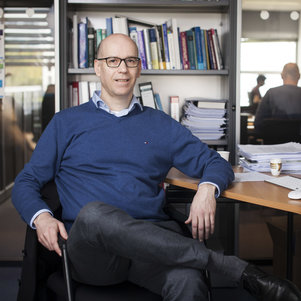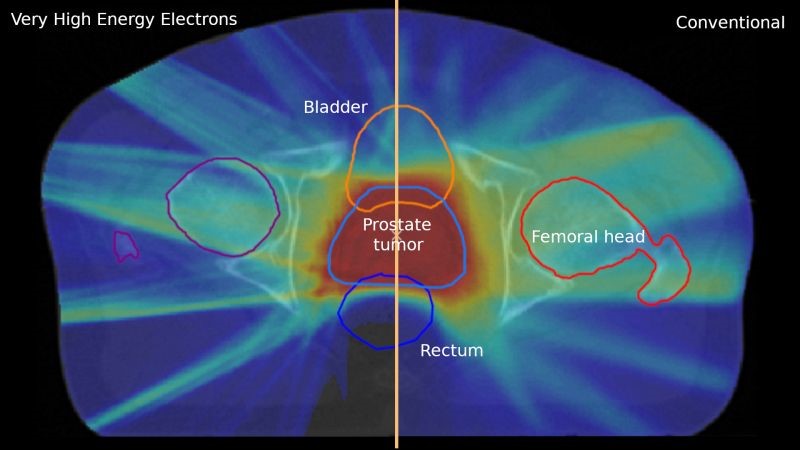NWO grant for new radiotherapy to reduce side effects and improve cure rates
TU Delft, Erasmus MC and University of Lausanne have received a 1 million grant to develop a new treatment using electrons called VHEE: Very High Energy Electron.
A significant scientific grant (1 M EUR) has been awarded by NWO to Erasmus University Medical Center (Erasmus MC, Sebastiaan Breedveld), TU Delft (Danny Lathouwers), and Lausanne University Hospital (CHUV, Till Tobias Böhlen) to explore the use of Very High Energy Electron (VHEE) Radiotherapy for next generation radiotherapy. This emerging cancer treatment modality has the potential to transform radiotherapy by reducing side effects and improving cure rates.
Electrons for cancer treatment
Globally, 17 million cancer patients are diagnosed each year, with approximately 50% requiring radiotherapy (RT). Currently, most RT treatments use X-ray beams (photon RT). In some cases, treatment outcomes are still limited due to high doses to healthy tissues that may leading to severe side effects.
VHEE RT, utilizing electron beams with energies between 100-400 MeV, offers a promising alternative. It can reduce doses to healthy tissues compared to photon RT and supports ultra-high dose rates, enabling FLASH RT. FLASH RT may substantially lower damage to healthy tissues while maintaining anti-tumor efficacy, representing a potential paradigm shift in cancer treatment.
Collaboration with CERN
The project is aligned with the construction of a pioneering clinical VHEE-FLASH device by THERYQ at CHUV in collaboration with CERN. It is actively supported and endorsed by distinguished experts in the fields of RT and AI, including Ben Heijmen, Raphaël Moeckli, Zoltan Perko, Remi Nout, Jean Bourhis, Matthias Guckenberger, Uwe Oelfke, Coen Hurkmans and Walter Wuensch.

dr.ir. Danny Lathouwers
Associate Prof.
- +31(0)15-27 83148
- D.Lathouwers@tudelft.nl
-
Building 50
Room: 1.01.040
Mekelweg 15
2629 JB Delft
The Netherlands
